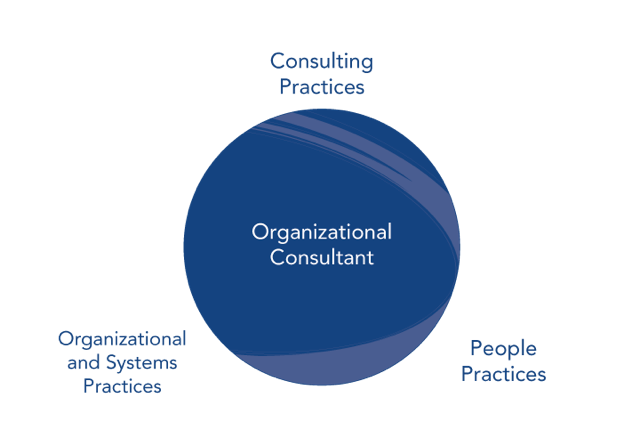In this phase, you and your client will work together to effectively implement the action plans from the Action Planning Phase. Although you want to work in a highly collaborative manner with your client, it is your client who must implement those plans in the workplace. What they had been doing naturally before is often what caused their issues in the first place. So they are likely to have to change, not only the organization, but some of themselves. Now is when you must muster all of your skills as a consultant (people, consulting, systems and organizational) because you will be supporting your client to get a lot done.
This purpose of this Evaluation Phase is to ensure that your client’s organization has integrated the necessary new approaches and practices to solve the problem now and into the future. This is the phase of the consulting process that really pays off if action plans have been focused on changing structures, plans, policies and roles. In this phase, you and your client will decide if the issues that were identified during the Discovery Phase have been successfully addressed. You will decide whether to proceed to the Termination Phase or to cycle back to an earlier phase to re-address your client's problem.
This purpose of this phase of the consulting process is to analyze whether the consulting project should be terminated or not. Depending on the outcome of the Evaluation Phase, you and your client might decide to cycle back to an earlier phase of the consulting process, for example, to refocus on the causes of the problem and what to do about it. If you decide to terminate the project, then you need to do so ethically, legally and administratively.
As a consultant, you might provide a variety of types of consulting and use a variety of different methods, such as advising, coaching or facilitating. Each of those methods is extremely important to know how to use and when to use. This course gives guidelines for how to use each and when. It also explains how to switch methods when needed. The course also dispels common myths about how consultants work -- myths that colleagues and clients might have about you.
This course explains the foundational concepts, terms and practices for professional consulting in any field. This course 1) gives you a broad definition of consulting; 2) explains the most common categories and types of consulting; 3) explains two very different and powerful approaches to solving problems with your clients; 4) explains those priorities in any consulting project, along with the working goals and assumptions behind each of them; 5) shares guidelines for you to always know who your real client is; and 6) clearly explains the similarities and differences between internal and external consultants.
Regardless of your type of consulting, it is critical that you establish some major principles, or guideposts, to ensure that you always consult in a manner that is highly effective, fair and equitable and that minimizes your liabilities as a consultant. In this course, you will learn powerful principles you can adopt in your own practice. You will also learn how to recognize, minimize and manage the risks inherent in any kind of consulting practice, especially during these times of increasing litigation. Finally, you will learn how to leave a project – if you absolutely have to – and to do so without causing further harm to yourself or your clients.
Your most powerful consulting tool is yourself -- how well you understand and accept others, and how well you cultivate working relationships with your clients. The more you understand yourself, the more effective you will be as a consultant. That includes knowing about your consulting style, biases (we all have them), natural view of organizations, response to feedback and conflict, and emotional intelligence. This course shares guidelines and resources to ensure that you fully understand yourself and your effects on others during significant consulting projects.
